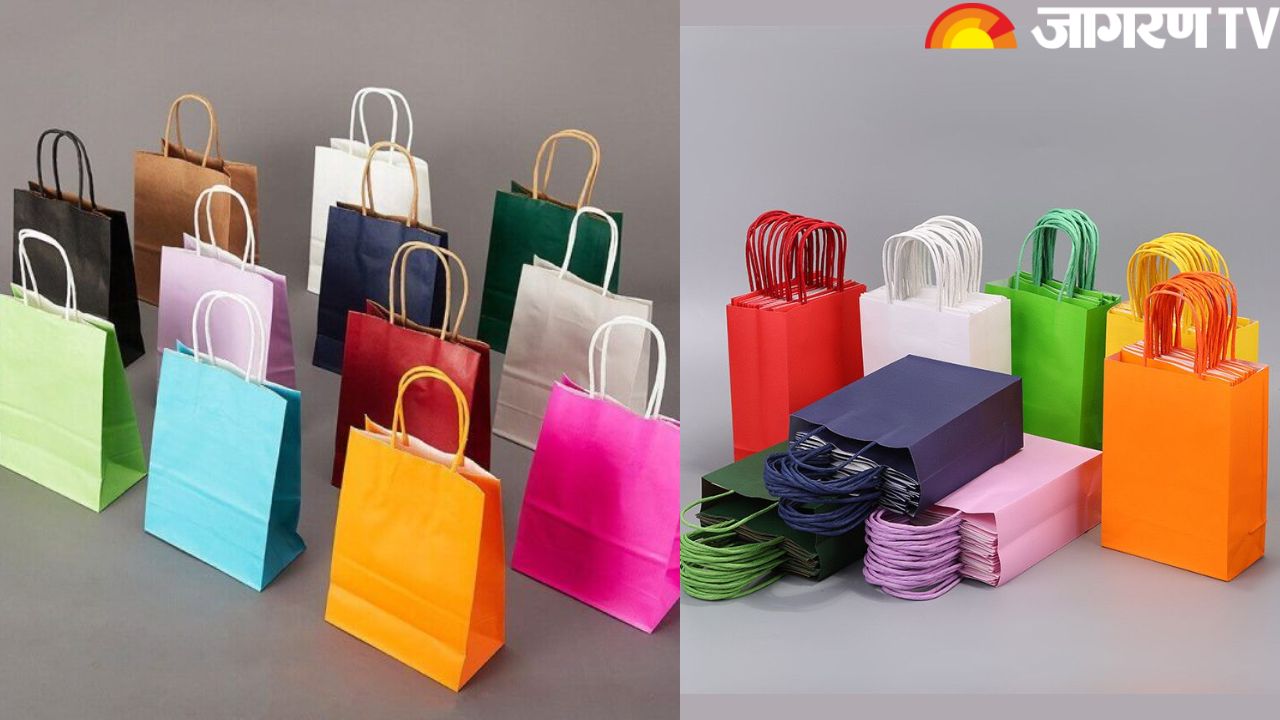International Paper Bag Day 2025: Embracing Eco-Friendly Choices for a Greener Tomorrow

International Paper Bag Day 2025: Every year on July 12th, International Paper Bag Day commemorates the paper bag's vital contribution to a healthier Earth. In an age when environmental concerns are at the forefront, this day serves as a timely reminder of the sustainable choices we can make in our daily lives, beginning with something as simple as the bag we use to carry our groceries.
Benefits of Paper Bags
The increase in popularity of paper bags is partly due to their various environmental and practical benefits.
Environment Friendly
Paper bags are biodegradable and compostable, which means they degrade naturally in the environment within a few months, unlike plastic bags, which can last for hundreds of years.
Made from Renewable Resources
The basic raw material for paper bags is wood pulp derived from sustainably managed forests. This ensures that new trees are planted to replace those taken, resulting in a renewable resource.
Recyclable
Paper bags are easily recyclable, and their strong cellulose fibres can be reused several times to create new paper products. This dramatically minimises garbage in landfills while conserving precious resources. Europe, for example, has a remarkable paper and cardboard recycling rate of more than 80%.
Reusable
Paper bags, particularly those composed of strong virgin cellulose fibres, can be reused for a variety of uses before being recycled. This extends their lives and decreases their environmental impact.
Lower Carbon Footprint
Paper bag manufacturing often uses less energy and emits fewer greenhouse gases than plastic bag manufacturing, resulting in a lower carbon footprint.
Safer for Food
Paper bags are regarded as safer for food storage since they do not leach dangerous chemicals into the food, which is a worry with some forms of plastic. Their porous nature also promotes improved air circulation, which can help keep some things, such as fruits and vegetables, fresher.
Promotes Brand Awareness
Personalised paper bags are a wonderful marketing tool. With appealing designs and company logos, they give a low-cost approach to enhance brand identity and can even serve as a walking advertisement as customers reuse them.
Durable and Strong
Modern paper bags are made to be strong and robust, able to withstand a substantial amount of weight without tearing, making them useful for carrying a variety of products.
Uses of Paper Bags
While paper bags are commonly associated with carrying groceries, they have a remarkable adaptability that reaches far beyond the grocery aisle.
Shopping Bags
Paper bags are frequently used for retail purchases, from apparel and books to toiletries and gadgets, because they are more aesthetically beautiful and, in many cases, more durable than plastic bags.
Packaging Solutions
They are used to package a variety of consumer commodities, including dry powdered and granular materials such as flour, cement, and animal feed. Multi-wall paper bags offer reliable protection for products that must meet stringent safety and durability standards.
Arts and Crafts
Paper bags are the first choice for making puppets, masks, and other imaginative creations for both children and adults.
Household Hacks
Paper bags can be repurposed for a variety of household tasks, including window cleaning (leaving a streak-free shine when used with white vinegar), recycling, fruit ripening (by trapping ethylene gas), onion and garlic storage (with punched holes for air circulation), and composting.
Gift Bags
Their adaptability makes them a fantastic choice for gift packaging, often adding a touch of elegance and personal flair.
Importance of Paper Bags for Environment
Paper bags help to make the environment safer and more sustainable in a variety of ways.
Reducing Plastic Pollution
Paper bags immediately battle the prevalent issue of plastic pollution, which chokes our oceans, damages wildlife, and contaminates ecosystems. Their natural decomposition means that they do not contribute to microplastic buildup.
Supporting a Circular Economy
Paper bags are highly recyclable, which is critical in establishing a circular economy. Used paper bags can be returned to paper mills and recycled into new products, effectively closing the loop and reducing the need for virgin materials.
Carbon Sequestration
Paper, which is derived from plants, stores carbon dioxide (CO2). When derived from sustainably managed forests, the ongoing development of new trees means that forests act as carbon sinks, helping to reduce climate change.
Biodegradable Waste Management
Many municipalities utilise specifically designed paper waste bags to collect biowaste and compost. They decompose alongside the organic matter, releasing beneficial fertilisers and energy while preventing hazardous chemicals from entering the soil.
Awareness
The increased public awareness about paper bags pushes individuals and businesses to make more environmentally responsible decisions. This transformation in consumer behaviour is critical for a broader transition to sustainable living.
Fewer Harmful Chemicals
Unlike some plastic bags, which may contain chemicals and toxins, paper bags are created from natural fibres, reducing the chance of harmful compounds entering the environment or food chain.
Related Videos
-
12 Jul, 2025
World Paper Bag Day 2025: क्यों मनाया जाता है पेपर बैग दिवस? जानें ...
-
03 Jul, 2025
Monsoon Skincare Tips For Oily Skin To Keep Breakouts and Acne Away ...
-
16 Dec, 2024
BPSC Paper Leak News : क्या रद्द होगी बिहार लोक सेवा आयोग की ...
-
12 Dec, 2024
NEET PG Exam 2025 की डेट घोषित, कब से शुरू होगा रजिस्ट्रेशन जानें ...
यह भी पढ़ें
-
09 Apr, 2023
IPL 2023 : आज हैदराबाद और पंजाब में कौन मारेगा बाजी, ऐसी हो सकती है दोनों टीम की प्लेइंग इलेवन
-
09 Apr, 2023
कोरियन दूल्हे ने इंडियन स्टाइल में की शादी, घोड़ी भी चढ़ा और भांगड़ा भी किया, वीडियो हुआ वायरल
-
09 Apr, 2023
-
09 Apr, 2023
आकांक्षा दुबे मामले में आरोपी समर सिंह को भीड़ ने दौड़ाया, 14 दिन की न्यायिक हिरासत








